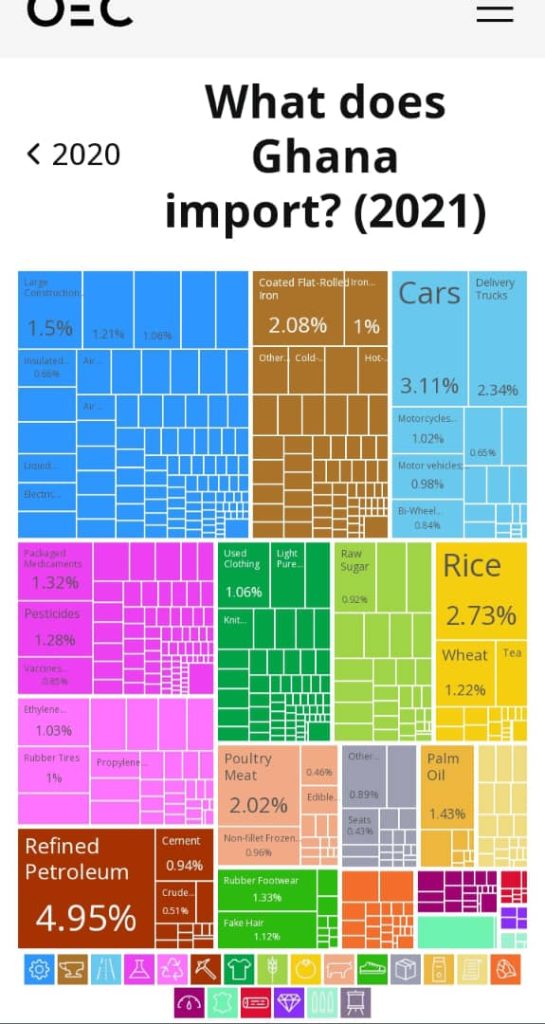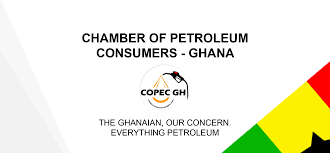A report released by the Observatory of Economic Complexity (OEC) has revealed that Ghana spent a total of $20.2 billion on imports in the year 2021.
A 20.2 billion United States dollars spent on imports only may raise eyebrows as ordinary citizens would wonder how such an amount which is almost ten times more than the country’s bailout request from the IMF was raised.
Some items on the list include; poultry meat, refined petroleum, rice, cars, palm oil, fake hair (wig), used clothes among others.
Out of the $20.2 billion, 4.95% ($999,900,000) was used for petroleum imports, 3.11% ($628,220,000) was used for cars importation, 1.43% ($288,860,000) for palm oil importation, 2.02% ($408,040,000) was used for poultry meat and 2.73% ($552,460,000) was used for rice importation.
https://oec.world/en/visualize/tree_map/hs92/import/gha/all/show/2021

Other imported items within the year include; pesticides, raw sugar, rubber footwear, coated flat-rolled iron, delivery trucks and many others.
This comes on the back of an economic hardship intensified by the covid-19 pandemic, which had compelled the government to embark on some fiscal adjustments in 2022 to engender some semblance of normality in the Ghanaian economy.
The revelation of this report could change the line of discussions about the government, as to how such an amount could be spent on imports only, especially on products that have been said could be produced locally in order to maintain cash flow in the system.
The government resorted to a domestic debt restructuring exercise in September 2022, a prerequisite initiative to warrant an approval of the country’s $3 million support request from the International Monetary Fund (IMF). Funds of both private sector and public sector institutions were used for the exercise. Those of pensioners and bondholders were not left out.
In recent developments in parliament, the Minister for Trades and Industries, Mr K.T Hammond proposed the restriction of some 14 listed items. The proposition if executed would require importers of the listed items to seek permission from the Ministry of Trades before carrying out their business. But this was opposed by the minority caucus in parliament and was later rejected by the speaker.
The minority had argued that such a policy would only breed corruption at the Ministry and that it would also heap hardship on ordinary Ghanaians.
Why Ghana cannot lay restriction on importation
Meanwhile, as one of the conditions for its IMF programme, Ghana itself may have been restricted from banning or restraining imported items. The IMF stated that for the sake of balance of payment purposes, the government of Ghana would be under the obligation of not imposing restrictions on importation.
This was the agreement signed by both parties in the $3 million IMF programme in 2022.
“No imposition or intensification of import restrictions for balance of payment reasons,” page 76 of the document indicated.
This was stated among four conditions attached to the roll-out of the programme. The Fund stressed that adherence to these obligations would be frequently monitored
They include:
• No imposition or intensification of restrictions on making payments and transfers for current International transactions.
• No introduction or modification of multiple currency practices.
• No conclusion of bilateral payments agreements inconsistent with Article VIII of the IMF Articles of Arrangement.
• No imposition or intensification of import restrictions for balance of payment reasons.














































